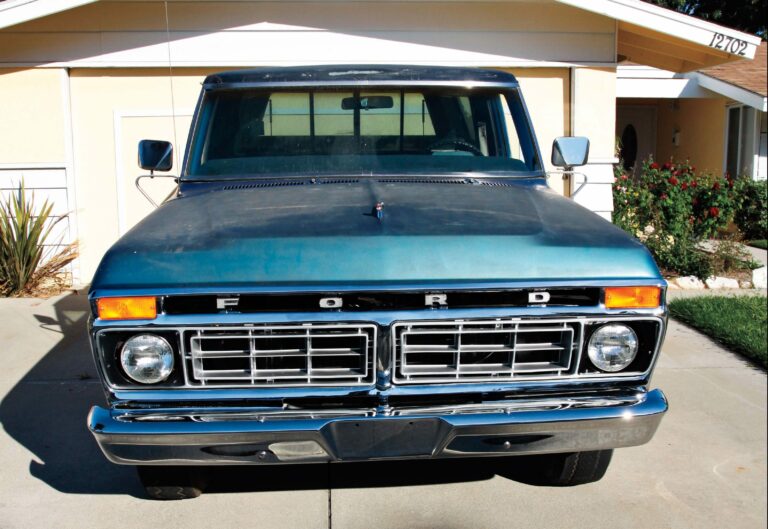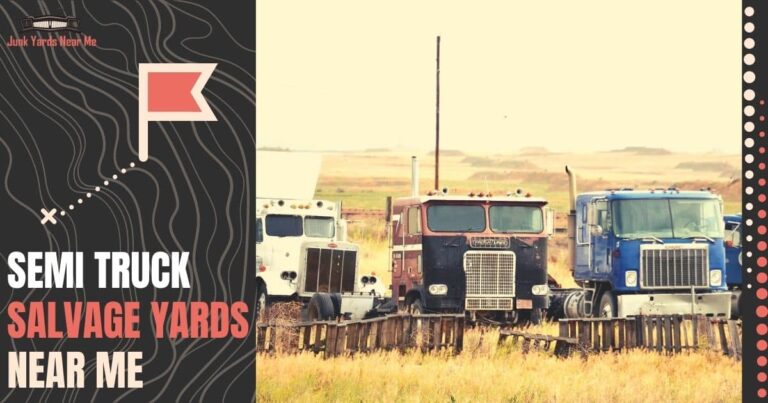Used Oilfield Pickup Trucks For Sale: Your Guide to Finding a Rugged Workhorse
Used Oilfield Pickup Trucks For Sale: Your Guide to Finding a Rugged Workhorse cars.truckstrend.com
The American landscape is dotted with vast, often challenging terrains, where robust vehicles are not just a convenience but a necessity. Among the most vital tools for industries operating in these demanding environments – from oil and gas to construction, agriculture, and utility services – is the humble yet mighty pickup truck. But not just any pickup truck; we’re talking about the heavy-duty, purpose-built workhorses often referred to as "oilfield pickup trucks."
These vehicles are engineered to withstand extreme conditions, haul immense loads, and navigate unforgiving landscapes. While a brand-new, fully equipped oilfield-grade truck can represent a significant capital expenditure, the market for used oilfield pickup trucks for sale offers a compelling alternative. This guide will delve into everything you need to know about these rugged machines, helping you make an informed and beneficial purchase.
Used Oilfield Pickup Trucks For Sale: Your Guide to Finding a Rugged Workhorse
What Makes an Oilfield Pickup Truck Unique?
An "oilfield pickup truck" isn’t just a marketing term; it denotes a vehicle built with specific capabilities and often equipped with specialized features designed for demanding commercial use. Unlike standard consumer pickups, these trucks are characterized by:
- Heavy-Duty Foundation: They typically feature reinforced frames, heavy-duty suspensions, and robust drivetrains (often 4×4) capable of handling continuous stress, rough roads, and significant payloads.
- Powerful Engines: Diesel engines are overwhelmingly preferred for their high torque output, fuel efficiency under load, and longevity. Popular choices include Ford’s Power Stroke, Ram’s Cummins, and GM’s Duramax. Gas engines are also available but less common in the most demanding applications.
- Specialized Upfits: This is where oilfield trucks truly differentiate themselves. They often come equipped with:
- Flatbeds: For easy loading/unloading of large or oddly shaped equipment.
- Service Bodies: Utility beds with integrated tool compartments, often with a crane mount or a liftgate.
- Welding Rigs: Trucks specifically configured for mobile welding operations.
- Auxiliary Fuel Tanks, Toolboxes, Winches, and PTO (Power Take-Off) capabilities.

- Durability and Ruggedness: They are designed to operate reliably in harsh climates, isolated locations, and challenging terrains, often accumulating high mileage and significant engine hours.
Why Buy a Used Oilfield Pickup? Benefits & Advantages
The decision to opt for a used oilfield pickup truck over a new one offers several compelling advantages, making it a popular choice for businesses and individuals alike:
- Significant Cost Savings: The primary benefit is financial. New heavy-duty trucks, especially with specialized upfits, can be incredibly expensive. Used trucks have already absorbed the steepest depreciation, allowing you to acquire a capable workhorse at a fraction of the cost.
- Built-in Durability and Reliability: These trucks are engineered for the long haul. Their robust construction means they can endure years of demanding work, often outlasting lighter-duty consumer vehicles.
- Ready for Work: Many used oilfield trucks come pre-equipped with essential upfits like flatbeds, service bodies, or winches. This saves you the time and expense of purchasing and installing these additions yourself, allowing the truck to go straight to work.
- Proven Performance: A used truck’s history in a demanding environment can be a testament to its reliability. If it has survived years in the oilfield, it’s likely a well-built machine.
- Retained Value: Due to their specialized nature and inherent utility, well-maintained used oilfield trucks tend to hold their value better than typical consumer vehicles, making them a solid investment.
Key Considerations When Buying a Used Oilfield Pickup
Purchasing a used commercial vehicle requires a more diligent approach than buying a personal car. Here are critical factors to assess:
- Thorough Condition Assessment:
- Frame Integrity: Inspect for rust, cracks, or bends, especially around suspension mounting points and the hitch.
- Engine & Transmission: Look for leaks, listen for unusual noises, check fluid levels and color. If possible, review maintenance records. Diesel engines are built for high mileage, but consistent maintenance is key.
- Suspension & Steering: Heavy loads take a toll. Check for worn ball joints, tie rods, shocks, and springs.
- Tires: Inspect tread wear. Uneven wear can indicate alignment issues or worn suspension components.
- Electrical Systems: Test all lights, gauges, HVAC, and any aftermarket accessories.
- Upfits: Ensure flatbeds are solid, service body compartments latch securely, and any cranes or liftgates function correctly.
- Interior: While cosmetic wear is expected, excessive damage can indicate neglect.
- Mileage vs. Engine Hours: High mileage is common, but also ask for engine hours. A truck with lower mileage but high engine hours (from idling or PTO use) can have more wear on the engine than its odometer suggests.
- Maintenance Records: This is gold. Comprehensive service records indicate a responsible previous owner and allow you to gauge the vehicle’s health and potential future needs.
- Rust and Corrosion: Particularly important in areas where roads are salted or in coastal regions. Check the undercarriage, brake lines, and body panels.
- Previous Use & Ownership: Was it a fleet lease truck, a company-owned vehicle, or an individually owned rig? Fleet vehicles often have strict maintenance schedules, but also potentially more drivers.
- Title & History Report: Always get a vehicle history report (e.g., Carfax or AutoCheck) to check for accidents, salvage titles, flood damage, or lien issues.
- Professional Pre-Purchase Inspection: This is non-negotiable for such a significant investment. A qualified mechanic specializing in heavy-duty trucks can identify potential issues you might miss, saving you from costly surprises down the road.
Where to Find Used Oilfield Pickups For Sale
The market for these specialized trucks is diverse:
- Specialized Commercial Dealerships: Many dealerships focus solely on commercial and fleet vehicles, often having a dedicated inventory of used work trucks.
- Online Marketplaces: Websites like TruckPaper.com, MachineryTrader.com, IronPlanet.com, and GovPlanet.com are excellent resources. General sites like eBay Motors, Craigslist, and Facebook Marketplace can also yield results, but require more caution.
- Auctions: Fleet liquidation auctions, government surplus auctions, and heavy equipment auctions are prime places to find these trucks, often at competitive prices.
- Direct from Companies: Oil and gas companies, large construction firms, and utility companies frequently cycle out their older fleet vehicles. Contacting them directly or watching for their public sales can be fruitful.
Types and Popular Models
The market for used oilfield trucks is dominated by the "Big Three" American manufacturers, known for their robust heavy-duty offerings:
- Ford: F-250, F-350, F-450, and F-550 (chassis cab versions often used for flatbeds/service bodies). Power Stroke diesel engines are common.
- Ram: 2500, 3500, and 4500/5500 (chassis cab). Cummins diesel engines are highly regarded for their durability.
- Chevrolet/GMC: 2500HD, 3500HD, and 4500/5500 (chassis cab). Duramax diesel engines are their staple.
Beyond the brand, consider the specific configuration:
- Flatbed Trucks: Ideal for hauling large, bulky items.
- Service Body Trucks: Perfect for tradesmen needing organized tool storage and mobile workshops.
- Crew Cab vs. Extended Cab vs. Regular Cab: Choose based on your need to transport personnel.
- 4×4 vs. 2WD: 4×4 is almost a standard for oilfield applications due to challenging terrains.
Tips for a Successful Purchase
- Define Your Needs: What will you primarily use the truck for? What payload and towing capacity do you require? What specialized equipment do you need?
- Set a Realistic Budget: Factor in the purchase price, potential repairs, registration, insurance, and any necessary upgrades.
- Be Patient: Finding the right truck in the right condition can take time. Don’t rush into a decision.
- Verify Everything: Double-check VINs, mileage, maintenance records, and any claims made by the seller.
- Negotiate Wisely: Use any identified issues from your inspection as leverage for a better price. Research market values for comparable trucks.
- Factor in Post-Purchase Costs: Even a well-maintained used truck might need new tires, brakes, or minor repairs soon after purchase.
Potential Challenges and Solutions
- High Mileage: Don’t be deterred by high mileage alone. For a diesel, 200,000+ miles can still mean plenty of life left if well-maintained. Focus on maintenance records and engine hours.
- Wear and Tear: Expect cosmetic imperfections and some wear on components. Budget for refurbishment or replacement of worn parts.
- Hidden Mechanical Issues: This is why a pre-purchase inspection is paramount. It mitigates the risk of unforeseen major repairs.
- Rust/Corrosion: Be extra vigilant. If the frame or critical components are severely compromised by rust, walk away. Surface rust can often be addressed.
- Financing: Older, high-mileage commercial vehicles may require specialized financing options from commercial lenders rather than traditional banks.
Used Oilfield Pickup Truck Estimated Price Table (Hypothetical)
| Make/Model | Year Range | Engine Type | Mileage Range (Approx.) | Upfit Type | Price Range (USD) | Notes |
|---|---|---|---|---|---|---|
| Ford F-350 | 2012-2016 | 6.7L Power Stroke Diesel | 180,000 – 250,000+ | Flatbed, Service Body | $20,000 – $35,000 | Popular, strong resale. Check injectors. |
| Ram 3500 | 2013-2017 | 6.7L Cummins Diesel | 150,000 – 220,000+ | Service Body, Flatbed | $22,000 – $38,000 | Known for engine longevity. |
| Chevy Silverado 3500HD | 2014-2018 | 6.6L Duramax Diesel | 160,000 – 240,000+ | Flatbed, Basic Work | $20,000 – $36,000 | Comfortable ride for a HD truck. |
| Ford F-250 | 2015-2019 | 6.2L Gas (V8) | 120,000 – 200,000+ | Standard Bed, Basic | $18,000 – $30,000 | Lower initial cost, higher fuel use. |
| Ram 2500 | 2016-2020 | 5.7L Gas (V8) | 100,000 – 180,000+ | Standard Bed, Basic | $17,000 – $28,000 | Good for lighter duty work. |
Note: Prices are highly variable based on exact condition, specific upfits, maintenance history, region, and market demand. This table provides a general estimate.
Frequently Asked Questions (FAQ)
Q1: Are these trucks only for oilfield work?
A1: Absolutely not! While they are built for the demands of the oilfield, their heavy-duty nature and specialized upfits make them ideal for construction, landscaping, agriculture, mobile mechanics, utility companies, rural property owners, and any trade requiring robust hauling and tool storage.
Q2: What’s considered "good mileage" for an oilfield truck?
A2: Unlike consumer vehicles, high mileage (200,000+ miles for diesels) is common and often acceptable if the truck has a solid maintenance history. Diesel engines are designed to last for hundreds of thousands of miles, sometimes even a million, with proper care. Focus more on consistent maintenance and engine hours rather than just the odometer reading.
Q3: Should I buy a gas or diesel oilfield truck?
A3: For heavy hauling, towing, and continuous demanding work, diesel is generally superior due to its higher torque, better fuel efficiency under load, and longer lifespan. Gas trucks are typically cheaper to buy and maintain, but their fuel costs can be higher in heavy use, and they might not have the same towing/payload capacity.
Q4: What is a "service body" and why is it useful?
A4: A service body (or utility body) replaces the standard pickup bed with a series of integrated, weather-sealed compartments along the sides, often with a large open cargo area in the middle. They are incredibly useful for organizing tools, equipment, and parts, effectively turning the truck into a mobile workshop.
Q5: Can I get financing for an older, used oilfield truck?
A5: Yes, but it might be different from financing a new consumer vehicle. Traditional banks might be hesitant on very high-mileage or older models. Commercial lenders, credit unions, or specialized equipment financing companies are often more willing to finance these types of vehicles, understanding their utility and value.
Q6: Is it worth paying for a pre-purchase inspection?
A6: Unequivocally, yes. A professional pre-purchase inspection by a mechanic familiar with heavy-duty trucks can uncover hidden mechanical issues, potential safety concerns, and give you a realistic estimate of any immediate repairs needed. This small investment can save you thousands in unexpected costs down the line.
Conclusion
Investing in a used oilfield pickup truck is a strategic decision for those who need a truly capable, durable, and cost-effective workhorse. While they come with a history of hard work, their inherent toughness and often purpose-built features make them invaluable assets across a range of demanding industries. By conducting thorough research, performing diligent inspections, and understanding the unique characteristics of these vehicles, you can confidently navigate the market and acquire a rugged truck that will serve you reliably for years to come. It’s more than just a purchase; it’s an investment in productivity and resilience.




